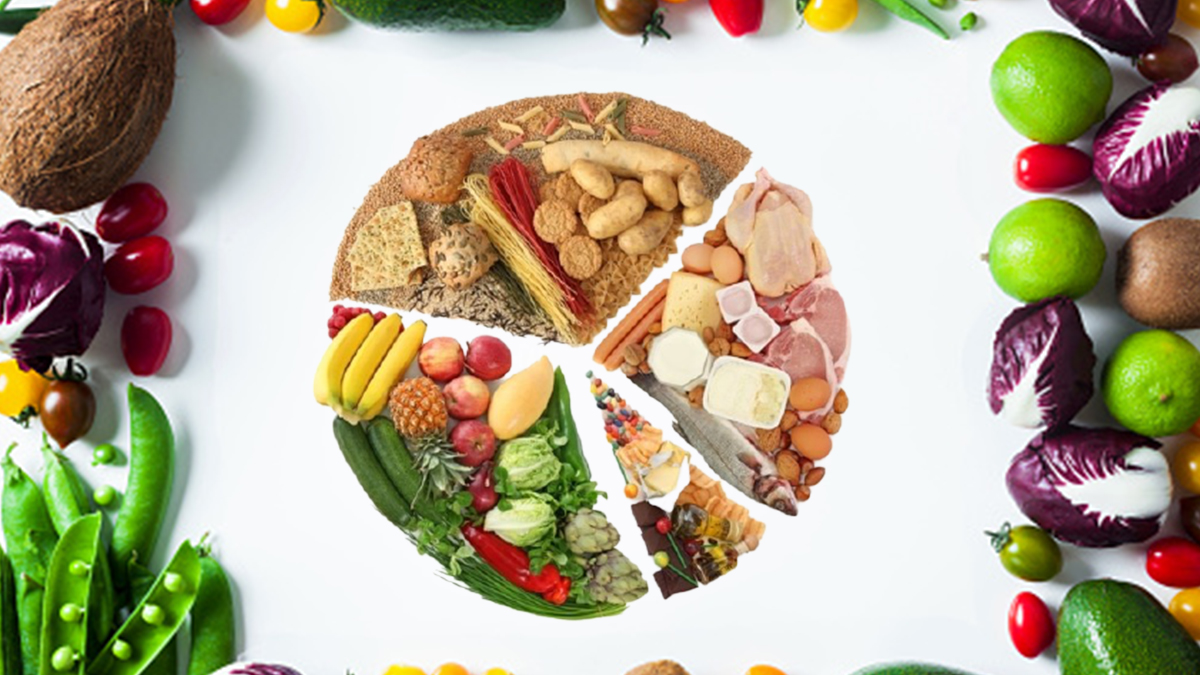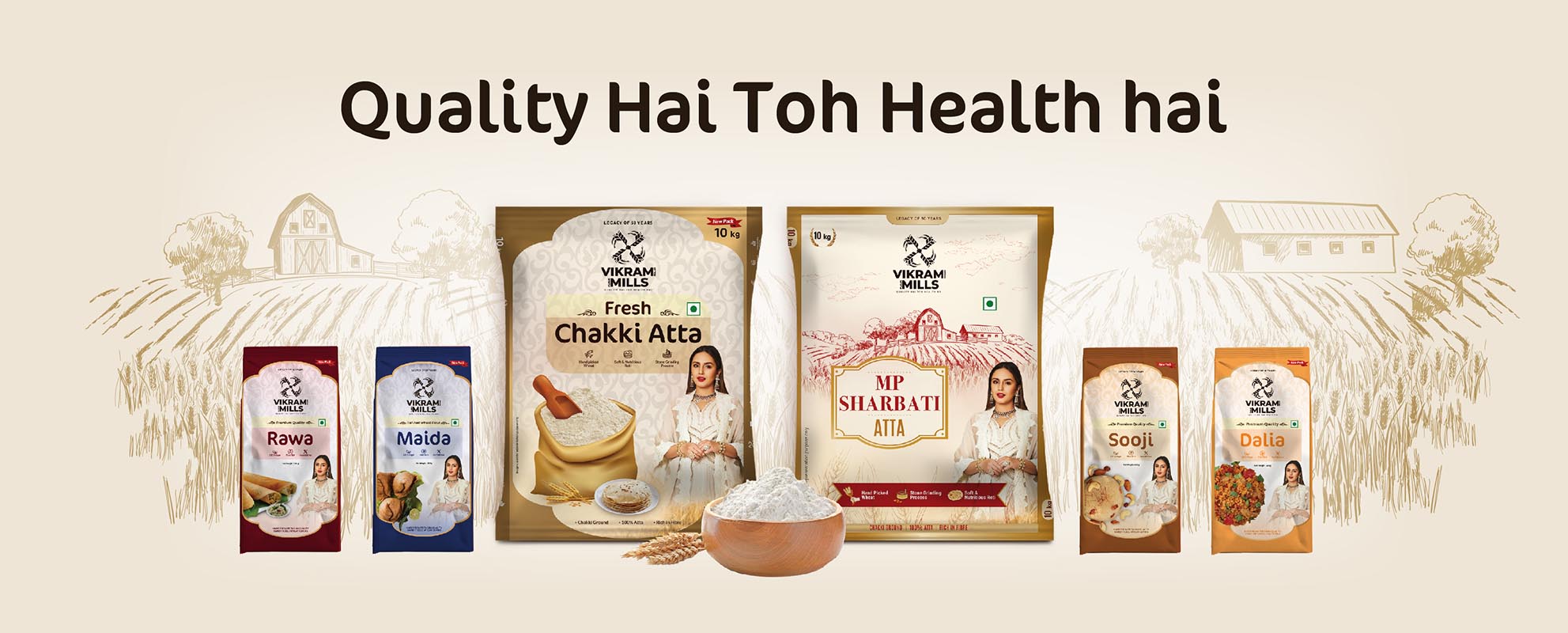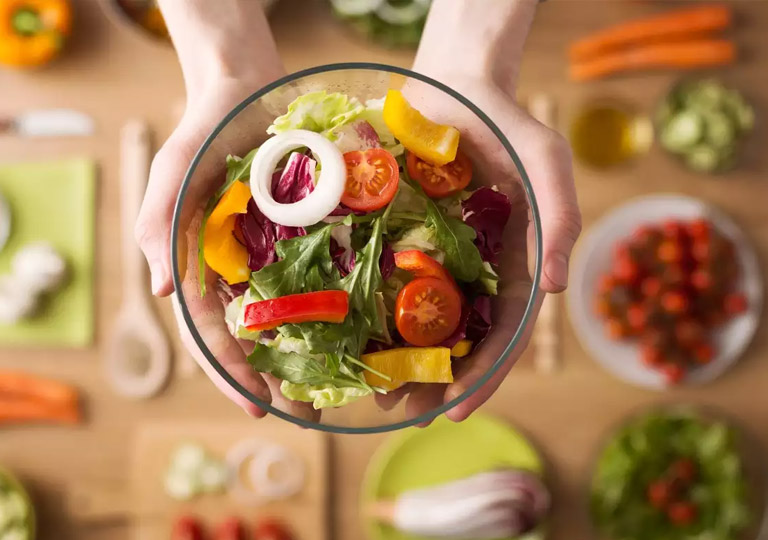Nourish Your Body with a Balanced Meal

The concept of a Balanced diet has been taught to us since our primary school by parents and teachers alike with the help of balanced diet charts. But more often than not, neither we nor our parents and teachers find a way to achieve the dream of incorporating a balanced diet into our lifestyles. The concept of a diet itself may bore you out. But since it is necessary for a healthy lifestyle, here is what you should do to nourish your body with a balanced meal.
Table of Contents
-
What exactly is a Balanced Diet?
-
What do you eat for a Balanced Diet?
- Fruits
- Vegetables
- Grains
- Dairy Products
- Protein foods
- Fats and Oils
- Conclusion
What exactly is a Balanced Diet?
So, to freshen your memory, let’s first define a balanced diet. A balanced diet, in the simplest words, is a system of meals that incorporates all nutrients that your body needs to function properly.
All of the nutrients are required in different proportions, but a good rule of thumb is to consume most of your calories from fresh fruits and vegetables, whole grains, and legumes.
What do you eat for a Balanced Diet?
To nourish your body with a balanced meal, you need to add the following nutrients:
- Vitamins
- Minerals
- Antioxidants
- Carbohydrates (including Starch and Fiber)
- Protein
- Fats
The nutrient list might look exhausting but it gets simpler when you divide things into food groups. Here are the types of foods you should have to include all the mentioned nutrients.
- Fruits
- Vegetables
- Grains
- Dairy Products
- Protein foods
- Fats and Oils
Fruits
Fruits would supply your quota of essential Vitamins, Fibre, and Antioxidants. But they also have some additional benefits besides being nutritious and healthy.
The biggest being that they serve well for your sweet cravings. This natural sugar is very less likely to cause an insulin spike unlike those desserts that you devour. However, diabetes patients should consider consulting a doctor or dietitian on which fruits to consume. So, try to have some fresh local fruits, depending upon the season, and enjoy delicacies that don’t even need cooking.
Vegetables
For most people, this is where it gets tough to nourish themselves with a balanced meal. The fruits are gulped somehow but the veggies take courage. But they too supply essential vitamins, minerals, and antioxidants. So, you should gulp some vegetables from all the available colors to add a full range of nutrients to your diet. Take aid of juices, smoothies, salads, and soups to maximize your intake.
Grains
Refined flours like Pure Maida are often empty calories with no or very little nutritional value.
Thus, when it comes to grains, you should only look towards whole grain products which include the goodness of the entire grain, and include additional vitamins, minerals, and fibre.
So, try switching from the more lucrative refined flour products to the healthier whole-grain products and maintain a balanced diet chart to keep your health in check.
Protein Foods
Protein, often referred to as “the building block of cells”, is as essential as it gets. You will find the muscle builders obsessed with this particular nutrient. But it is necessary for every regular individual as well.
When it comes to Animal proteins, you should consume them with some scrutiny. Some of the healthier options include- red meat (like beef and mutton), poultry (as in chicken, and turkey), fishes (like salmon, sardines, or any other oily fish).
Since processed meat has a lot of added preservatives, and salts, you should always go for fresh meat. Furthermore, some research also suggests that processed meat, and red meats might increase the risk of cancer, and other diseases.
Plant-based protein sources are often risk-free. The most common plant-based sources include- nuts, beans, and soy products.
Soy-based products like Tofu can even act as a healthy alternative to meat.
Dairy
Dairy products are the house of proteins, calcium, and vitamin D, and some fats. So, you might want to choose dairy products with lesser fats if you are looking to minimize your fat intake.
If you wish to follow a vegan diet, you have some handy dairy alternatives these days, made from a variety of healthy sources like- flax seeds, almonds, and cashews, soy, oats, and coconut. These alternatives often add some extra nutrients, making them an even better choice.
Fats and Oils
You need to draw certain lines when it comes to your fat intake. Fat is necessary for your cells but too much of it above the maintenance calories, and you will be inching towards weight gain.
In general, you should have more unsaturated fats than saturated in your diet. Vegetables and fish oils are considered safe for your health. However, you should try to limit fats coming from sources like butter, and cheese.
Trans fat found in processed, and pre-made food should be kept at a distance under all circumstances.
Conclusion
So, after reading the long list of foods to add, it seems a daunting exercise to even try to nourish your body with a balanced meal. But to keep things simple you should try bringing in as much diversity to your meals as possible.
A simple direction for the proportions would be to fill half of the plate with fruits, and vegetables, followed by just over a quarter of grains, and under a quarter of proteins with some dairy or a non-dairy substitute on the sides.

Vikram Roller Flour Mills Limited is a pioneer name in the Agro-products manufacturing, packaging, and delivery in India. The company specializes in manufacturing supreme quality wheat products that are consumed by top-level bakers, caterers and FMCG suppliers in the country.
Know More About Us





